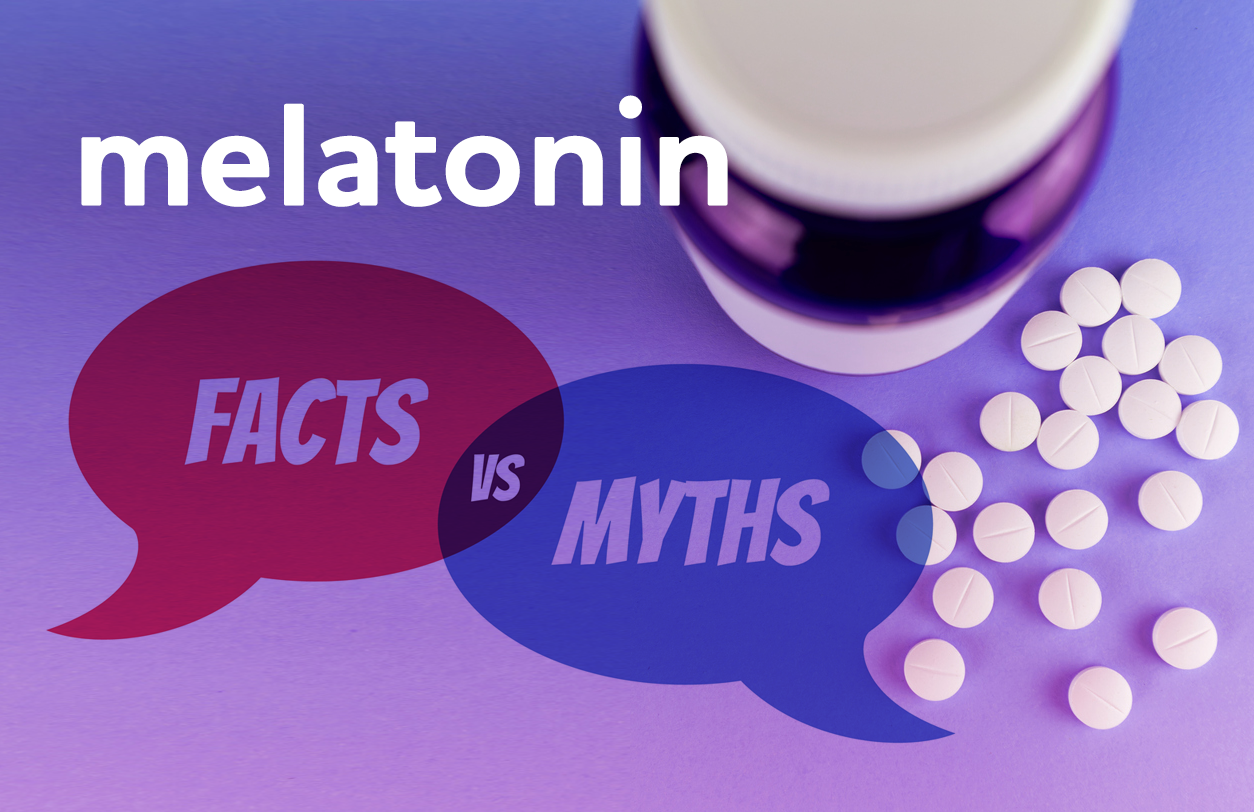Misinformation about melatonin can leave you wondering about the safety and benefit of this popular dietary supplement ingredient. We dispel four common myths and share the facts about FDA-regulated melatonin.


Melatonin Myth #1 – Melatonin is a sedative
FACT: Melatonin does not have sedative properties. Rather, melatonin is a hormone naturally produced by our bodies and helps to adjust our internal body clocks that, among other things, regulates sleep. If you take melatonin in the evening, it signals to your body that it is time to sleep.

Melatonin Myth #2 – Melatonin is addictive
FACT: In scientific research, melatonin has not been shown to have addictive properties. It is important to follow label instructions as excessive doses may cause adverse side effects.

Melatonin Myth #3 - Melatonin can be used to treat insomnia
FACT: Melatonin dietary supplements are intended for sleep support and jet lag. If you have long-term sleep difficulties or insomnia, consult a healthcare professional.

And the biggest myth of all? Melatonin and other dietary supplements are not regulated by the FDA.
FACT: FDA regulates both finished dietary supplement products and dietary ingredients. FDA regulates dietary supplements under a different set of regulations than those covering "conventional" foods and drug products (the Dietary Supplement Health and Education Act of 1994, or DSHEA). Among the many requirements, dietary supplements are subject to facility inspections, compliance with good manufacturing practices, labeling requirements and adverse event reporting.
According to CRN's Consumer Survey on Dietary Supplements, 69% of supplement users regularly get a good night's sleep compared with 63% of non-users.

Learn more about the healthy habits of dietary supplement users.

